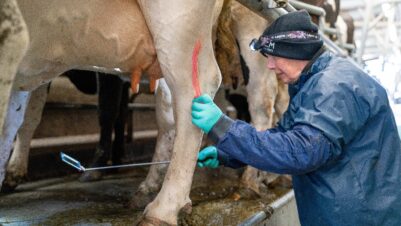Last month saw a groundswell of climate awareness across the world. Spearheaded primarily by the remarkable teenage activist Greta Thunberg, the world seemed to wake up to the unfolding peril of ecological collapse that we face. There is frequently talk of “saving the planet”, but I’ve often wondered about this phrase: our planet Earth will likely endure long into the future, but on the current trajectory, we will need systemic, concerted action to save the life forms that call it home – ourselves, our animals and the diverse wild plant and animal species that we depend on for our survival.

Such rhetoric is considered dramatic and inflammatory by some. But as veterinary professionals and multi-disciplinary scientists, we only need to review the mounting body of evidence to give these claims credence, and accept that we face a fork in the road. One route – “business as usual” – is easy and familiar; the other involves a seismic shift; it is arduous, disruptive but ultimately necessary.
Vet Sustain was established on 4 October 2019, led by a group of prominent veterinary professionals representing a variety of backgrounds from practice, consultancy and academia, to business, policy and politics. Our vision is clear: for the veterinary profession to be a driving force for sustainability, supporting each other to make a positive and lasting contribution to our society.
Sustainability has become a loaded and alienating term to some – but we are following the simple definition of Newcastle University of “Enough, for all, forever” to inform and influence our profession to integrate sustainability principles and practices into our working lives.
As a profession, we have so much to give and already make a significant, if largely under-recognised, contribution to some of the most pressing sustainability challenges of our time. In this first month of Vet Sustain, we have been exploring and celebrating this contribution with our fledgling but growing network.
Vets and vet nurses lead the way for animal health, safe-guarding welfare and fostering the vital roles of animals in society for our nutrition, employment, companionship and well-being. In farm animals, our work to prevent, control and treat disease also means dramatically cutting food waste and resource use.
We are the gatekeepers of medicines, and through prudent use, we limit contamination of the environment with toxic residues and help to safeguard human health by reducing the threat of antimicrobial resistance – a challenge considered among the greatest facing human civilisation. We directly protect the health and welfare of wild animal species, through research and conservation, and the work of specialist clinics, but also through the unwavering commitment of individual veterinary practices and staff that self-fund their treatment of the wild animals that arrive in boxes on their doorsteps. This work requires greater public visibility in order for us to receive due recognition for the multiple sustainability services we deliver.
We can do more. Veterinary professionals occupy an extraordinary niche at the human-animal-environment interface, that we can leverage to drive progress towards the many sustainable development goals that we can influence.
Opportunities for change lie in cutting the environmental footprints of the 5,500 veterinary practices in the UK. We can utilise veterinary premises as wildlife and pollinator sanctuaries in urban and peri-urban areas, and as community hubs for domestic waste reduction. Opportunities await to drive reductions in the environmental footprints of domestic animal populations, asking ourselves some difficult questions about the size of the populations that we truly need, and that our environment can sustain.
We can support the farming decisions that minimise the negative consequences of animal agriculture and maximise its value for biodiversity, carbon capture, soil health and rural communities. And we can double-down in our mandate as custodians of animal welfare, addressing the root causes of suffering from genetics to production systems that are responsible for the many problems that exist for some of the species under our care.
We’ve heard that small changes are not sufficient to prevent the environmental disaster we face. But we believe that everyone can utilise their niche at home and at work to make a positive and lasting contribution in sustainability, not least veterinary professionals with our influence within communities, and in the fields of science, policy and politics. It’s time for us to choose the most difficult fork in the road, and Vet Sustain will support the profession in navigating it.
Find out more on the Vet Sustain website.







